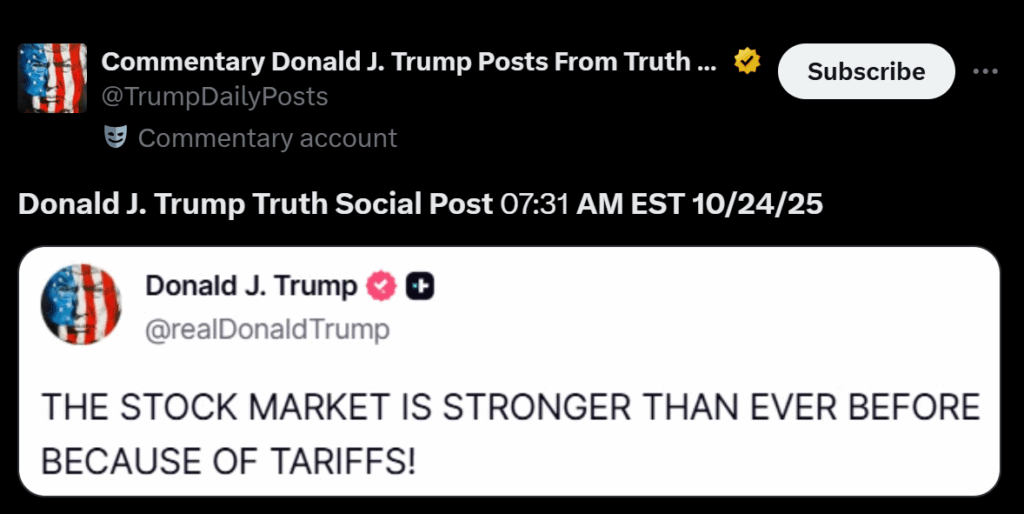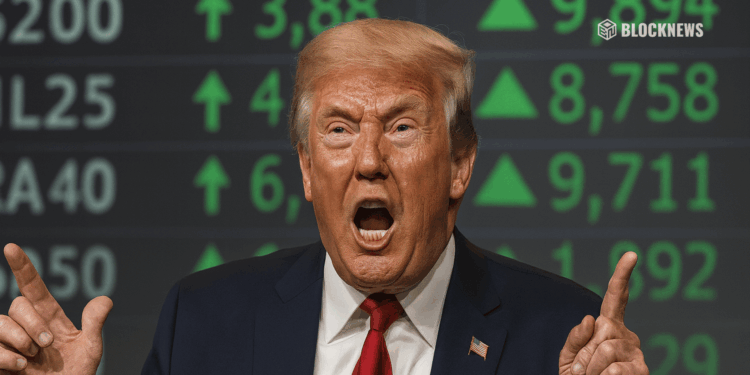- Trump credits tariffs for record U.S. stock market highs, calling them key to national strength.
- Inflation data came in cooler-than-expected, reinforcing bullish market sentiment.
- All major U.S. indices hit new all-time highs as investors cheer easing inflation and tariff optimism.
President Donald Trump credited his protective trade tariffs for fueling the record-breaking U.S. stock market, taking to Truth Social on Friday to declare that his policies had made the nation “wealthy, powerful, and nationally secure again.” In back-to-back posts, Trump said, “THE STOCK MARKET IS STRONGER THAN EVER BEFORE BECAUSE OF TARIFFS!”

His comments came just hours after fresh inflation data showed consumer prices rising less than expected in September. The CPI report revealed that inflation is cooling, with core prices showing only mild increases. This easing trend bolstered investor sentiment and gave Trump’s claims about economic strength a timely boost.
Market Rallies to Record Highs
The latest inflation data sent markets soaring, with all three major U.S. indices hitting new all-time highs Friday morning. The S&P 500 climbed 0.83%, tracked by the SPDR S&P 500 ETF (SPY), while the Nasdaq 100 gained 1.19% via the Invesco QQQ Trust (QQQ). The rally supported Trump’s argument that tariffs have not sparked inflation — a key concern among critics — but instead coincided with a resilient, expanding economy.
Economists note that while tariffs typically raise import costs, their impact has been offset by broader disinflationary forces, including falling energy prices and moderating wage growth. As a result, the stock market’s record-setting momentum is being seen as both a reaction to easing inflation and a reflection of investor confidence in Trump’s economic agenda.

Trade Tensions Cloud Global Outlook
Despite the market’s surge, trade tensions remain a potential risk factor. Trump terminated talks with Canada on Thursday after calling an Ontario advertisement featuring Ronald Reagan “fraudulent” for criticizing tariffs. Canadian Prime Minister Mark Carney has said that Ottawa remains open to renewed discussions whenever Washington is ready.
Meanwhile, Trump is set to meet with Chinese President Xi Jinping next Thursday at the APEC Summit in South Korea. The meeting — their first since Trump’s return to office — is expected to center on tariffs, export restrictions, and the possibility of new trade measures if negotiations falter. Global markets will be watching closely for any signs of de-escalation or further confrontation that could shift investor sentiment in the weeks ahead.














